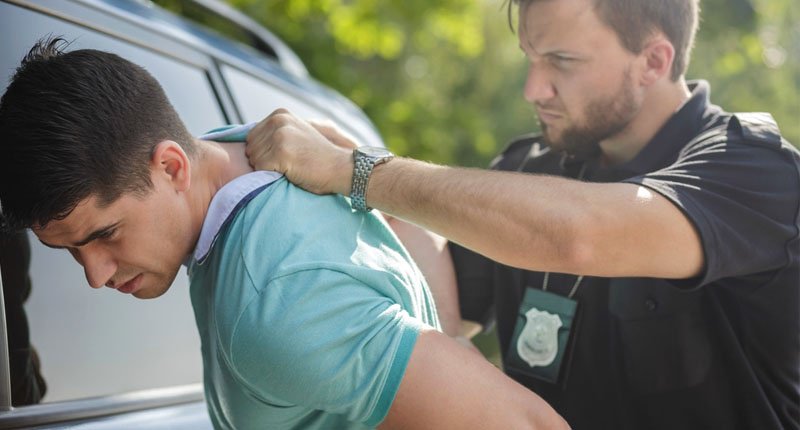Whether you’re running a background check to get more information on someone or you decided to run a background check on yourself to see if anything comes up, you may be wondering if the report will cover arrests or only convictions.
In the former scenario, it’s important to find out if someone was arrested and not just if they were convicted of a crime so that you can get a full picture of their past. And for the latter, you may decide getting a background check on yourself is unnecessary if it won’t have arrests and you’ve never been convicted of anything.
The information in a background check depends on the type of check you run. Here’s what you need to know about different types of background checks, what they contain and if arrests show up on background checks.
What a Standard Criminal Background Check Will Cover
A standard criminal background check will search at the local, state and federal levels for criminal records. It will pull up both convictions and non-convictions, meaning if you’re wondering “will my arrest show up on my background check,” the answer is usually “yes.”
Convictions obviously include any charges where the person in question was found guilty of a crime, whether it’s a felony or a misdemeanor. The exception to this is if the person was found guilty, but then was able to get the charge taken off the record. This is common with first offense misdemeanors.
Non-convictions will include any activity in a person’s record that didn’t result in a conviction. This includes charges that were dismissed, arrest warrants and arrests.
With arrest records, you can usually see why someone went to jail and the status of the case, which will be one of the following:
• Conviction
• Non-conviction
• Pending case
Pending case means that the person in question has a criminal charge against them, but the result hasn’t been decided yet. If you want to see if someone has been convicted of a crime later when they had a pending case arrest in their background check, you can often use the case information to look up what happened.
How Long Do Arrests Stay on Someone’s Record?
The Fair Credit Reporting Act (FCRA) covers how long a non-conviction arrest can stay on someone’s record, and the guideline is that these are reportable for seven years. Convictions are reportable indefinitely under the FCRA.
It’s important to note that state law can overrule the FCRA, prohibiting the reporting of certain non-convictions or convictions that would otherwise be reportable.
Arrests Don’t Always Show Up on Standard Criminal Background Checks
Criminal background checks sometimes don’t pull up every arrest. Arrests for convictions that were later expunged or sealed typically won’t show up. Non-convictions that occurred more than seven years ago won’t be there, and the background check could also miss arrest records tied to a person’s previous legal name if they changed it.
A private investigator can often find records that a standard background check would miss. Although this gives you a more detailed account of a person’s background, you need to be careful how you use this information. For example, the FCRA restricts how employers can use background check information in hiring decisions. If you use prohibited information to make a hiring decision, you could be opening yourself up for legal troubles.
Other Types of Background Checks
Criminal background checks are the most common, but there are other options available.
You can use a financial background check to pull up information on a person’s credit score, past bankruptcies, and a full list of their past and present assets. This usually requires the permission of the person you’re running the check on.
A private investigator can run a comprehensive background check on any person of interest, pulling up records of any previous marriages, all the phone numbers associated with that person, their family and the people they associate with, and even their activities on social media.
You can get a person’s driving record through your state’s Department of Motor Vehicles (DMV), although this typically also requires the person’s permission. A private investigator will often be able to find things that wouldn’t show up on the driving record.
Getting the Information You Need
As you can see, there are many different options available when it comes to background checks, allowing you to choose the one that best suits your situation. You can trust that a criminal background check will include any reportable arrests and convictions, and if you want to be even more thorough, a private investigator should be able to uncover everything you want to know. Just make sure you’re following federal and state laws regarding how you use the information.

